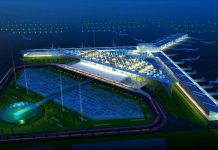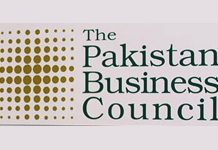Imagine a publicly traded company facing a crisis that has brought it on the verge of bankruptcy. There has been a hostile takeover of said company, with a new chief executive officer embarking on a difficult task of stabilizing and turning around the business. These events take place after months of tensions, much of it playing out in the public domain. In his first few days on the job, the CEO has failed to provide a new plan, and has in fact met the former CEO and his old team to discuss the turnaround strategy. As if this was not enough, the old team’s key members are making statements that are contrary to what the CEO’s key advisors are saying. Such a company would quickly see its stock tank, creditors scrambling to protect their interests, and employees who have lost all faith in the new team.
This is, in short, what has happened with the Pakistan Muslim League Nawaz’s (PML-N) tried, tested, and experienced team over the last few weeks. As Shehbaz Sharif ascended to the prime minister’s office in Islamabad after a tortuous few weeks, it was quite evident that Pakistan’s economy was on the brink. A disastrous fuel subsidy had blown up the fiscal deficit, political polarization had eroded the legitimacy of the new government before it even began doing its work, and former prime minister Imran Khan’s rallies across the country had put him in the driving seat. Rather than roll out a bold economic reforms agenda within hours of coming to power, Shehbaz Sharif and the Pakistan Muslim League-Nawaz dithered, with successive rejections of the fuel price hike summary signaling to the market that they were still figuring things out.
It was during this unfolding crisis that Finance Minister Miftah Ismail visited Washington, where he had meetings with the International Monetary Fund (IMF). The goal of these meetings was to get the IMF program back on track, with the finance minister clearly signaling that there was no option but to end the petroleum subsidy. There was an expectation that upon his return to Islamabad, the government would make the tough choices that were needed and embark on a painful period of stabilization and reform.
This, however, did not happen.
It soon became clear that financial assistance from key allies including Saudi Arabia was also contingent on the resumption of the IMF program, which again meant that the government had to signal a willingness to fulfill the prior actions the IMF was expecting. But former finance minister Dar’s public interviews, where he openly and clearly disagreed with his own party’s finance minister, signaled that all was not well in the PML-N.
Led by the prime minister, a delegation flew to London to sit around the table and ask their leader to sort out the disagreements. The signal of such a trip has significantly undermined confidence in the government and its ability to make tough choices. The London huddle is still ongoing at the moment this article is being written, meaning that the experienced team of the PML-N continues to be lost at sea.
The path forward is quite clear: the PML-N must bite the bullet and embark on yet another period of austerity and stabilization. This will be painful, more so because main street has already been hurt by 40 percent inflation over the last three and a half years. The political cost of the adjustment will be singularly borne by the PML-N, not its coalition allies, because it is the PML-N that oversees the key ministries responsible for pushing things forward.
The prime minister and his advisors need to realize that this crisis is an opportunity, which if grasped, can significantly bolster their own electoral chances. How, one would ask, is that possible, when there is more inflation, more joblessness, and more economic pain around the corner?
The answer is simple: the pain can be managed by redirecting the state’s largesse, which directs almost $17 billion a year to the country’s elite, to ordinary citizens who have been ignored for far too long. The easiest way to do that is to raise the fuel prices to plug the fiscal deficit and direct much of the windfall to millions of households via cash transfers. These transfers should be made to every qualifying citizen’s bank account – those that do not have a bank account should be permitted to open a zero-balance account at a bank of their choosing through an automated, frictionless process.
Reaching these people should be part of the PML-N and its allies’ electoral strategy: a prime minister hitting the pavement from Thatta to Skardu will dominate the news cycle, engaging with the masses to onboard them into the program and ensuring that they are receiving benefits that they are entitled to. Such a strategy will suck the oxygen out of Khan’s agenda and dominate the news cycle daily. To ensure maximum coverage, the prime minister and his allied party leaders should set clear goals for parliamentarians with regards to onboarding citizens in their constituency in the next thirty days.
This is the only way for the government to navigate these choppy economic waters and bolster its electoral chances. Anything short of this will allow Khan to build further momentum while simultaneously inflicting immense economic pain on millions of ordinary citizens.
























Govt shud take over the fys mills relatingg to comodties.
100% operation relted to population growth
Borrow loans from wealthy pakistanis
Police SHO rank d below. Their bank acts be acquir to govt accts
All agri land tht is not cultivated by thr owners shoulb be alloter to those who can cultivate
Complete ban on import of agr comodities
Major flaw is your argument is the assumption that these self-centered politicians care about the ordinary people or for that matter about Pakistan- they plenty of opportunities to demonstrate that in last 30yrs.
Just to agree with your point and moving it further I’ll like to say that yes these politicians may not care about ordinary citizens but they do care about themselves and they’ll do anything just to stay in power even if it means really doing something for the people. One thing that I like about imran is that he is giving a competition, I mean he is breaking the monopoly. So I guess these politicians must have to do something for themselves and for the country otherwise these so called 60 percent youth we always chant about is not that stupid.